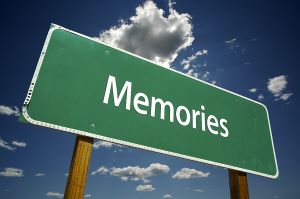March 26, 2024
by Patricia Tomasi
 A new study published in eLife looked at how hippocampal-occipital connectivity reflects autobiographical memory deficits in aphantasia.
A new study published in eLife looked at how hippocampal-occipital connectivity reflects autobiographical memory deficits in aphantasia.
“Our study is about the relationship between inner images and our ability to recall personal past events (autobiographical memory),” study author Cornelia McCormick told us. “We set out to see whether these inner images are essential to remembering autobiographical memories. Aphantasia describes a normal neuropsychological variant in the population which prohibits people to ‘see’ inner images. Therefore, we chose to investigate autobiographical memory deficits in aphantasia and especially, their neural correlates.”
The research team had a strong hypothesis. The hippocampus, a seahorse-shaped brain region is usually very involved in autobiographical memory, especially in interaction with the visual-perceptual cortex when it comes to assembling details into inner images. The researchers hypothesized that these two brain regions may act differently in aphantasia than controls during autobiographical memory.
“I am by training a neuroscientific memory researcher,” McCormick told us. “I conducted my PhD at the University of Toronto, Canada and my postdoctoral work at UCL, London. Now, I am working as a psychiatrist at the memory clinic of the University of Bonn. To me, it is still fascinating that people can remember sometimes decades old personal events with great clarity. I am searching for some indications of how the brain is capable to accomplish this task.”
With the help of the Bonn Aphantasia Research Project, the researchers invited a group of aphantasics and non-aphantasics to our research centre. They conducted an extensive autobiographical memory interview which helps in accessing how detailed people re-experience personal events. In addition, they conducted a functional magnetic resonance imaging (fMRI) scan during autobiographical memory and resting state.
“We found that people with aphantasia reported over all categories (visual-perceptual, emotional, time) less details than controls,” McCormick told us. “These results had been described before, so we expected to find this. Our study added the fMRI data. We found that the hippocampus was less activated during autobiographical memory in aphantasics than controls and the connectivtiy between the hippocampus and visual-perceptual cortex differed.”
The results of the study show that the autobiographical memory deficits described in aphantasia are reflected by a neural correlate.
“It seems that inner images are essential for our ability to remember personal past events and that the hippocampal system is strongly involved in this,” McCormick told us. “One important future question is now to see how people who are blind from birth (who never had the opportunity to generate visual inner images) remember autobiographical memories. This study is ongoing and we are thrilled to see the results there.”
About the Author
 Patricia Tomasi
Patricia Tomasi
Patricia Tomasi is a mom, maternal mental health advocate, journalist, and speaker. She writes regularly for the Huffington Post Canada, focusing primarily on maternal mental health after suffering from severe postpartum anxiety twice. You can find her Huffington Post biography here. Patricia is also a Patient Expert Advisor for the North American-based, Maternal Mental Health Research Collective and is the founder of the online peer support group - Facebook Postpartum Depression & Anxiety Support Group - with over 1500 members worldwide. Blog: www.patriciatomasiblog.wordpress.com
Email: tomasi.patricia@gmail.com